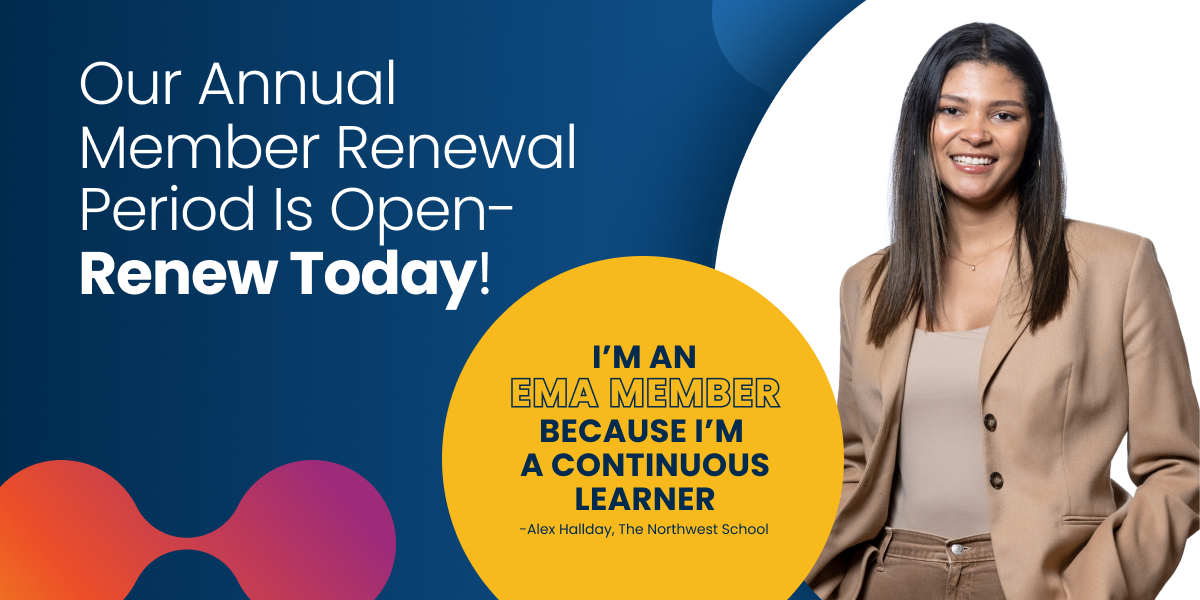Lessons from Chicago: Assessing Assessment

It’s been several weeks since SSATB’s Annual Meeting in Chicago, and we’ve been busy scoring the largest number of October SSATs ever. But the excitement built by our time together with you in the Windy City is still present at headquarters. We were thrilled to have a record turnout of nearly 600 attendees in Chicago, and the meeting has inspired many ongoing conversations with member schools about a great number of important issues in the admission community.
During my opening address in Chicago, I said that our goal at SSATB is to keep testing at the highest possible standard—and that means constant monitoring and improvement of current testing protocols. In the past year, we have developed all-new Upper Level and Middle Level SSATs (with experimental sections that will keep replenishing our question pool); refreshed our writing prompts; and created a brand new elementary school admission test, now in its pilot year. We have taken a hard look at international testing administration, rebuilt our infrastructure with multi-level security, and rewritten our test administration instructions.
We believe that adhering to the highest possible standard also means assessing our own methods, finding new lenses for looking at testing, and considering new approaches for the students of the future. That’s where Chicago keynoter Dr. Robert Sternberg comes in.
One of the highlights of this year’s Annual Meeting—though virtual due to the vagaries of modern air travel—was hearing from Dr. Sternberg, former president of the American Psychological Association and author/developer of the Triarchic Theory of Intelligence. In many ways, Sternberg has become the conscience of standardized testing for the 21st century. His wide-ranging talk, “Beyond Standardized Testing: Wisdom, Intelligence and Creativity Synthesized,” introduced new approaches that he has pioneered in schools and colleges which support his view that schools ought to assess both cognitive and non-cognitive strengths in students.
Sternberg suggested that independent schools work together to take the lead on assessing creativity and the ethical mindset in addition to analytic intelligence, in order to refocus attention on the importance of these two areas to future student/adult success.
Ray Diffley, Director of Admissions at Choate Rosemary Hall (CT), introduced Sternberg, calling him the single most important thinker on expanding and revamping educational assessment in the nation today. Diffley has championed Sternberg’s work at Choate by working with him to develop and implement an assessment that determines those students most likely to succeed and add value to the Choate Rosemary Hall experience.
Sternberg believes that if independent schools wish to develop students to be active citizens and future leaders, we need to measure a broader range of skills during the selection process. Although the most practical use of admission testing predicts academic performance in the schools to which test takers are applying, adding assessment of creativity as well as practical and ethical intelligence improves the predictive power of testing, he says.
Sternberg told admission leaders that expanding assessment is both practical and idealistic and he has walked the walk, introducing innovative tests at Tufts University, Choate Rosemary Hall, and now the University of Oklahoma. He advocates for adding an assessment measure for ethical judgment. Such a metric, he argues, will also be predictive of success, although in a more abstract way. Why? He pointed out that when prominent people fail or go awry, it is rarely due to low IQ—it’s the result of poor judgment and a lack of ethics.
Wisdom-based skills, Sternberg explained, include:
- Critical thinking
- Seeing multiple points of view
- Understanding how what is true can change over time
- Understanding long-term as well as short-term implications
- Thinking for the common good
Doesn't that describe in a fundamental way the kind of student you want in your school?
In the lively discussion that followed his presentation, Sternberg was asked: if current analytic assessments were to expand in just one way, which area he would choose? His answer: creativity. Creativity is the most significant factor in improving the predictability of school success, claims Sternberg. Our society today demands creativity and innovation skills and aptitudes. Moreover, creativity helps children and young people to respond effectively to new environments.
To continue to explore Sternberg’s critically important ideas and other innovations in testing, we have convened an SSATB Think Tank on the Future of Assessment. You will be hearing from these thought leaders in the months ahead as they launch a blog on this website.
Two other themes within Chicago’s meeting will be addressed in future blogs: diversity issues in the 21st century, and what independent schools can learn from higher education (with a special nod to Groton’s Ian Gracey, who suggested this theme and brought Jim Nondorf, vice president and dean of college admission at University of Chicago, to our 2012 meeting).




